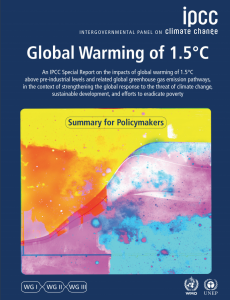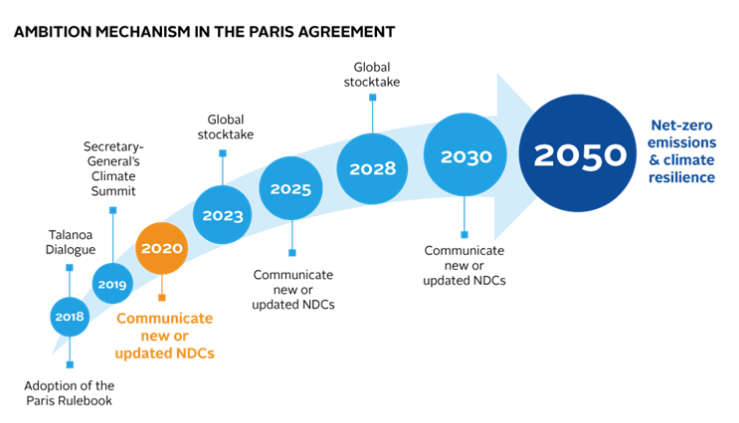Reports from the latest meeting of the United Nations Climate Change conference in Katowice, Poland appeared to indicate that the Historic Paris Accord was in trouble and that the world was not making as much progress as it should. The goal of the meeting, the 24th since 1995, was to establish a set of agreed upon rules and procedures for the implementation of the agreement reached in Paris.
The good news is that a rule book was agreed to and all the countries in the world, including the United States and China agreed to play by the same rules. It appears that this required long and tense negotiations and the conference postponed one of the most complex issues, that pertaining to article 6 of the Paris Accord, until the next meeting in 2019.
Article 6 is the section of the Accord which spells out that countries could potentially trade their progress on decarbonization with each other and use market mechanisms to achieve the long term goal of keeping temperature rise at less than 1.5 º C compared to pre-industrial times. There was a draft resolution on article 6 which proposed setting up an international body to supervise global carbon trading but agreement could not be reached and the whole question postponed to next year.
The rest of the details were, however, worked out and Katowice was clearly another step on the path to achieving the goals set out two years ago in Paris. The essential idea is that the agreements comprise a kind of rule book which spells out the mechanisms that the world will use to monitor the Accord and track progress.
Critics of the Paris accord on the environmental side maintain that the national targets (NDC’s) are not enough, there is not enough money committed to the developing world, and the whole thing is voluntary rather than compulsory so who knows what will happen over the next 20 years.
While all of this is true, the good news from Katowice is that 196 countries are still deeply engaged in the process and have agreed to a set of rules, however, imperfect. Over time, the hope is that national targets will become more ambitious and the operation of a world wide mechanism for reporting and tracking progress will lead to profound de-carbonization.
Even more good news came from C40, a network of now 96 cities in the world, including Barcelona and Madrid, to push for even faster action on carbon reduction than their national governments are doing.
The network includes 15 of the largest cities in the Unites States and while the Trump Administration still plans to withdraw form the deal next year, it is likely that a Democratic Administration wold bring the U.S. back immediately after the next election assuming they win!
 Climate change is a long term, complex problem that requires a global effort. That effort needs to balance the legitimate goal of people all over the world to enjoy a full and prosperous life while at the same time doing so in a responsible way based on our best scientific understanding of the situation.
Climate change is a long term, complex problem that requires a global effort. That effort needs to balance the legitimate goal of people all over the world to enjoy a full and prosperous life while at the same time doing so in a responsible way based on our best scientific understanding of the situation.
In Katowice, one of the sticking points was whether the conference would “welcome” the IPCC’s latest report on the potential impacts of going over 1.5ºC. The BBC reports that Saudi Arabia, The United States, and Russia wanted only to “note” the report. In the end, the final resolution, “recognized” the science.
Regardless of weather politicians welcome, note or recognize the science involved, the facts a fairly clear that the world needs to move to a low carbon economy if we are going to provide prosperity to most of the people on the planet. Katowice was one more step on a long and complex road!


